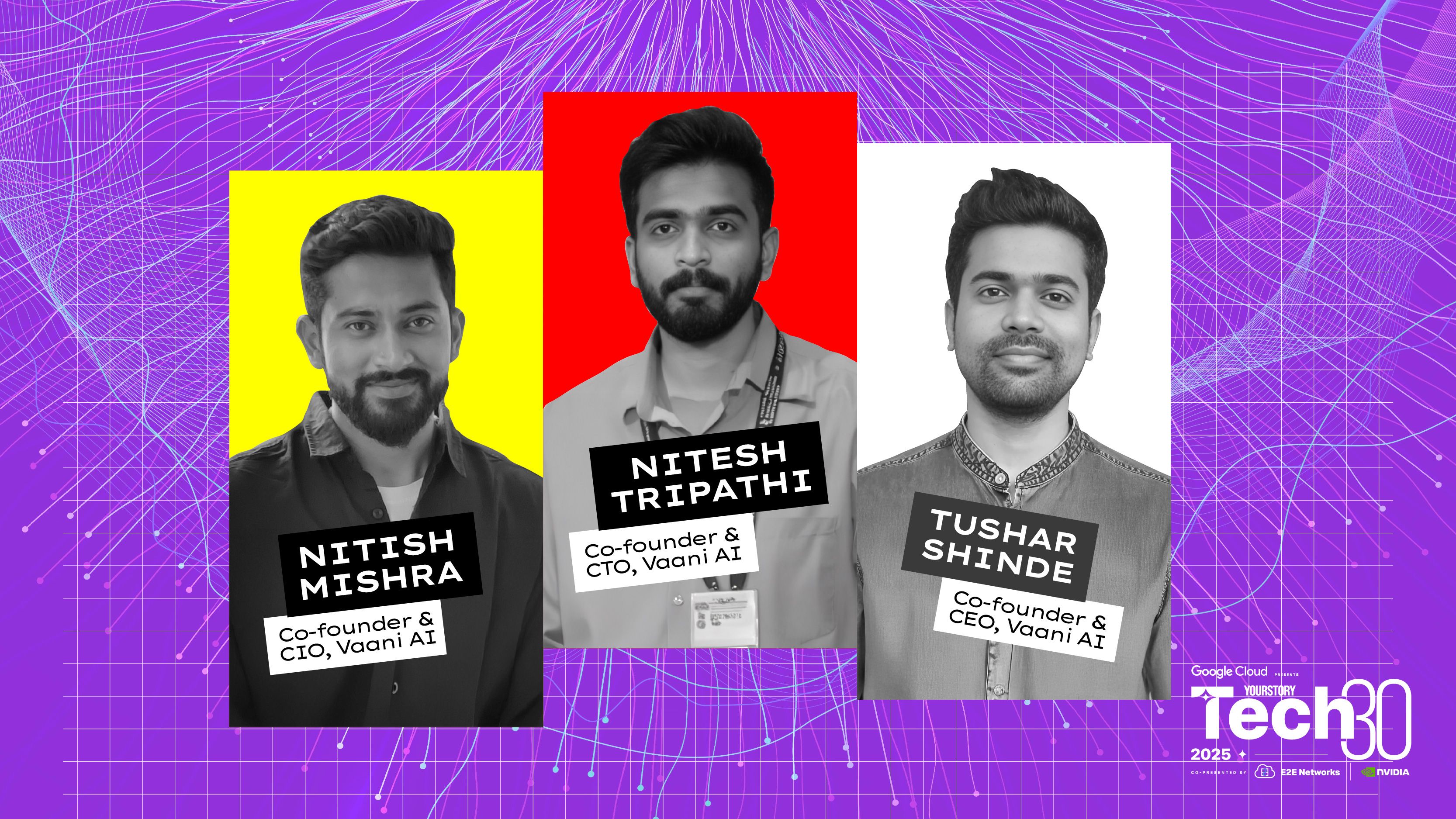Copyright yourstory

In today’s digital world, voice is becoming the next big way to interact with technology. Yet most voice assistants still sound robotic and struggle to understand context. Human-computer interaction has long relied on screens and text, but Bengaluru-based startup Vaani AI is changing that by building advanced voice systems that sound natural, think intelligently, and make digital communication more human. Most voice systems are built using different third-party tools for recognition, response, and speech, which leads to slow and inconsistent performance. Seeing this gap, the team behind Vaani decided to build a single, unified platform designed specifically for voice. Tushar Shinde, Co-founder and CEO of Vaani AI, says, “Our goal wasn’t to make another voice assistant but build the Stripe for voice, an easy-to-use infrastructure that helps companies create reliable, human-like voice systems.” The idea traces back to Shinde’s research at the Indian Institute of Science (IISc) in 2018, where he explored reinforcement learning and speech systems. His co-founders, Nitish Mishra, an IIT Madras alumnus and former DevOps engineer at SGBC, and Nitesh Tripathi, a former staff data scientist at Hypersonix, shared a common passion for conversational AI and human-computer interfaces. Early this year, the trio began developing proprietary speech models, and they set up Vaani AI officially in April after months of R&D. The core product took nearly six months to build. By September this year, Vaani AI had developed its first in-house speech recognition and text-to-speech model, capable of understanding natural intonation and responding with near-human expressiveness. Instead of creating a front-end app, the team chose to focus on a backend platform accessible through APIs, allowing enterprises to integrate Vaani’s capabilities directly into their systems. Vaani AI uses a mix of speech and generative AI, including automatic speech recognition, text-to-speech, and large language models (LLMs), powered by reinforcement learning to make conversations sound natural and accurate. It is building this complete voice infrastructure entirely in-house. Currently, the startup operates on a B2B2C model, powering conversations between companies and their end users. Enterprises can either deploy Vaani’s solution on-premise or access it through API endpoints that process incoming voice queries and return accurate voice responses in real time. Product and pricing Vaani AI's business model revolves around consumption-based pricing; clients pay for the minutes of voice processed. The startup currently handles around 1 lakh minutes per month; this number is expected to grow to half a million minutes by March 2026. The company''s services are primarily used for automating contact centre operations, CRM workflows, and customer support across sectors such as BFSI, mobility, and healthcare. Currently, Vaani AI serves clients across India, Europe, and the Middle East. It works with over 15 enterprise clients, including Indian enterprises SBI Life Insurance, NaVi, Everest Fleet, WorkIndia, and EarKart; European automotive group SiCNOW; and Middle East-based MySarah Automotive. Competition and differentiation According to a report by Fortune Business Insights, the global voice AI market is projected to be worth $19.09 billion in 2025 and is expected to reach $81.59 billion by 2032, growing at a compound annual growth rate of 23.1%. The voice AI landscape includes global players such as 11 Labs, Deepgram, Saras AI, Sarvam AI, and Smallest.ai. However, most of them rely on stitched-together systems using external components, says Shinde. “Most pilots in this space fail to reach production because of latency and inconsistency,” he says. “We’re solving that by offering a single, optimised layer that handles everything from scale to accuracy.” Expansion and future plans The startup, which was bootstrapped initially, recently raised $400K in a pre-seed round led by Venture Catalysts, with participation from angels from Meta and Apple’s Superintelligence teams. The funding is being used to expand R&D and launch products. Vaani AI plans to release a public API layer by December this year, followed by a self-serve platform in early 2026 that will allow developers to build voice-enabled solutions without direct assistance. A more advanced text-to-speech model for Indian languages, trained on 18TB of proprietary speech data, is scheduled for release by March 2026. The startup aims to expand into the United States by mid-2026. Vaani AI’s immediate target is an ARR of $150 million and over $2 billion in five years. Vaani AI is part of YourStory’s Tech30 cohort—a selection of India’s most promising startups of 2025—unveiled at TechSparks Bengaluru.



